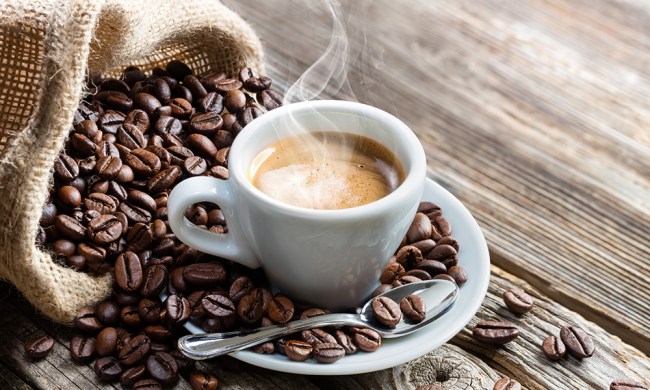The freezer is one of the modern age’s greatest inventions. Who among us hasn’t overindulged at Costco after being seduced by the delicious samples and then returned home, grateful for the backup garage freezer? Its convenience is unmatched for storing things like extra proteins, tasty ice creams, cookie doughs, and if you’re a parent, bags and bags of frozen dino nuggets. Freezing food is not only a convenient way to stock up on frequently used ingredients, but it’s a great way to save money as well.
Unfortunately, not everything stands up to the frozen tundra of the garage freezer as well as those tasty dino nuggets. These are a few of the items you should never put in the freezer.
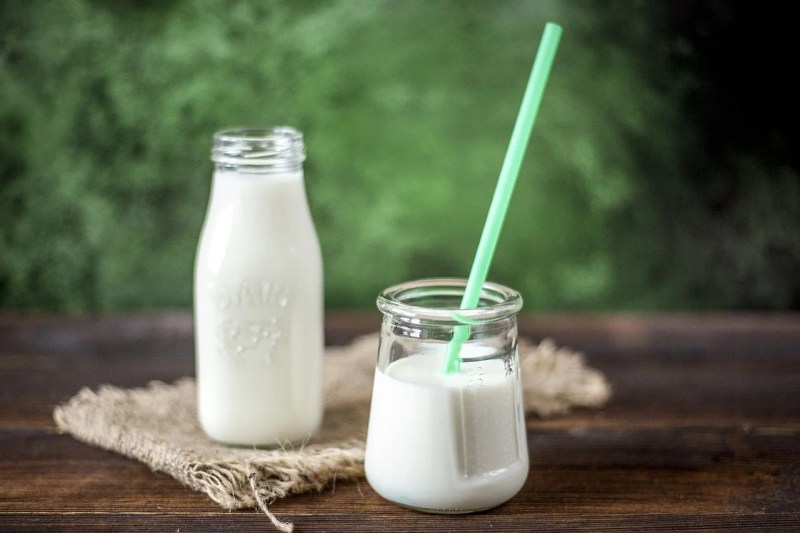
Milk
Freezing and thawing milk can produce some pretty gnarly results. If you’re wondering if you can freeze milk, the answer is, well, sort of. Technically, it’s safe to drink, and the flavor will keep. The problem is the transformation of texture that the milk goes through in the process. When thawing frozen milk, the proteins thaw before the water in the milk does. This causes separation and a texture that’s more than a little bit off-putting.
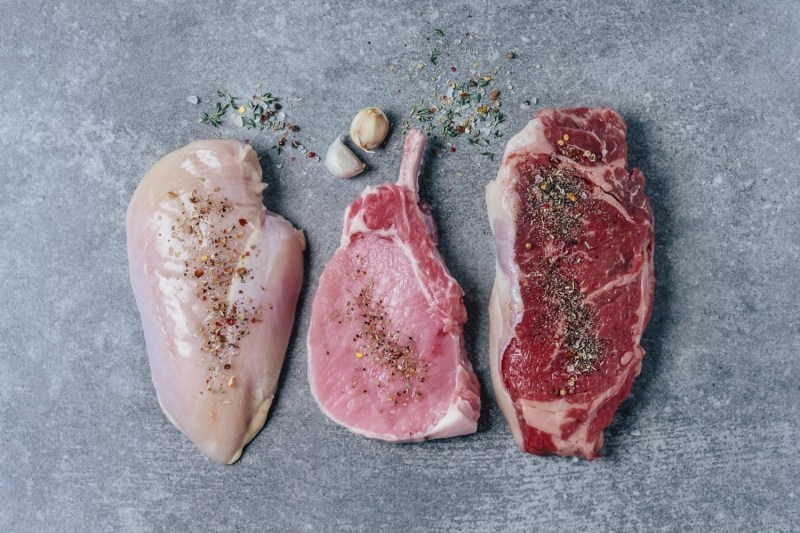
Defrosted meats
Food safety has taught us in the past that freezing previously frozen meats is a bad idea. These days, however, those rules have changed. The USDA now tells us that by taking certain steps and precautions, we can freeze this food safely.
However, while it may be safe, refreezing previously thawed meat isn’t recommended if you want to actually enjoy your meal. When meat is frozen, some of the cell walls inside the protein will break down. This will happen with each additional freezing and thawing, making the meat lose more of its original texture each time. If done more than once, your protein will likely lose any structural integrity, not to mention flavor and freshness. Best to either eat it fresh, or if absolutely necessary, freeze just once.
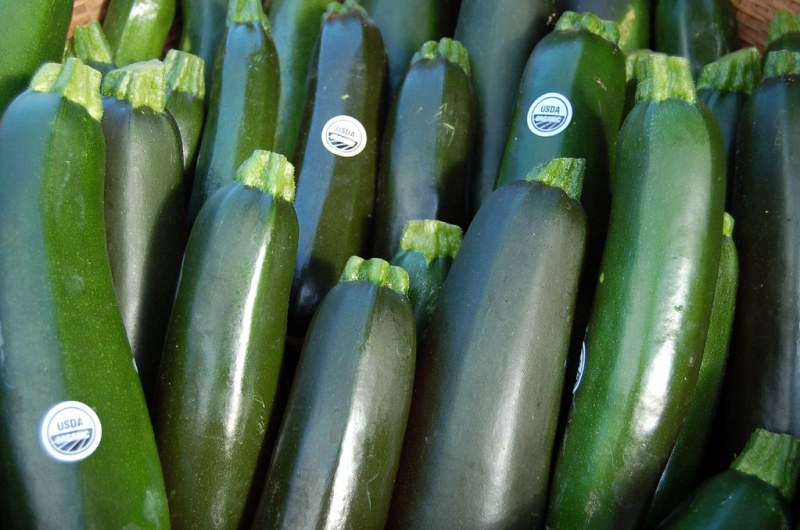
Watery vegetables, salad greens
Watery vegetables like zucchini and lettuce are finicky little things. Because of their high moisture content, they tend to wilt quite easily. Zap them of their moisture and they fall flat in both flavor and texture. Add more moisture to their already watery composition and they’ll burst and plump to the point of inedibility. That’s why it’s best not to put these divas in the freezer. The added moisture will rob them of their structural integrity, resulting in a mushy and water-logged mess.
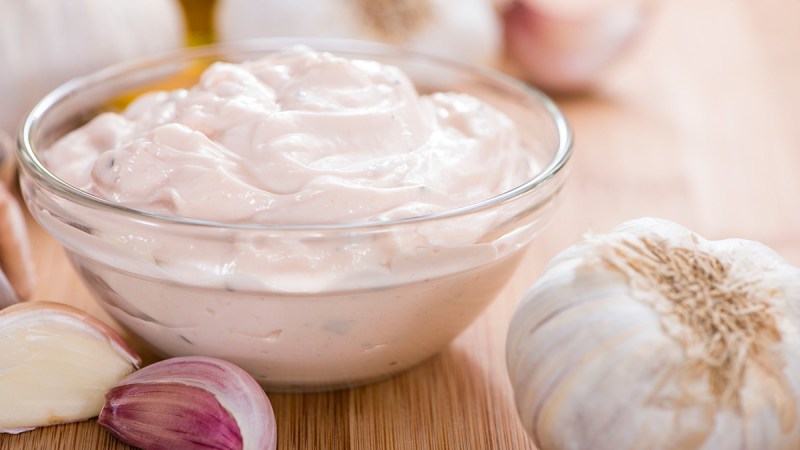
Mayonnaise
There are people out there who just absolutely abhor mayonnaise. They’re the same people who shudder at the word “moist.” While this is difficult to understand because good mayonnaise is an absolute treasure, we do want to give a fair trigger warning. If you’re disgusted by mayo, you may want to skip to the next list item because this is pretty gross.
Like milk, when mayonnaise thaws from a frozen state, it will separate. As the emulsification of what was once yolks, oil, and vinegar breaks down, the mixture will pool and separate, creating a film of oil floating atop an egg yolk base. When this happens, there’s no hope of getting it back into its silky smooth state.
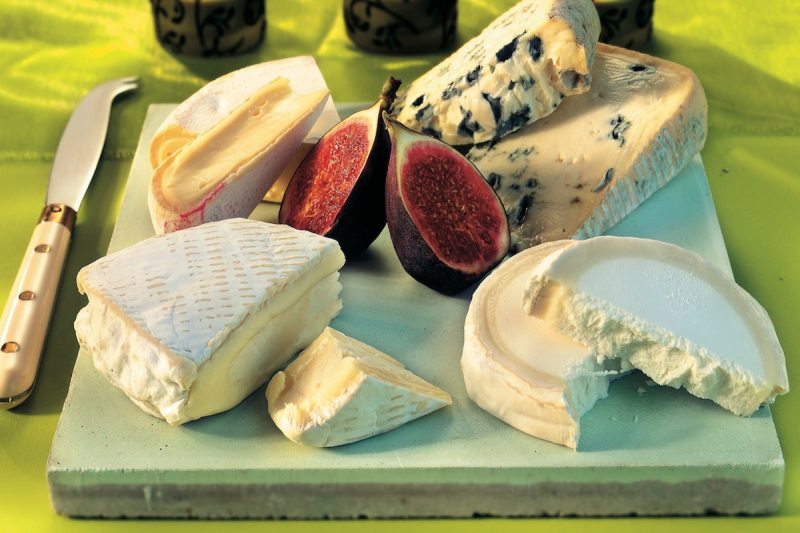
Soft cheeses
One of the most beautiful things about soft cheeses is their wonderfully smooth, creamy texture. Unfortunately, freezing them will hugely affect their deliciously velvety smoothness. The loose texture of soft cheeses will allow ice crystals to form inside, causing the structure to change immensely. Once thawed, the cheese will be drier and mealy. Best to store the brie in the fridge.
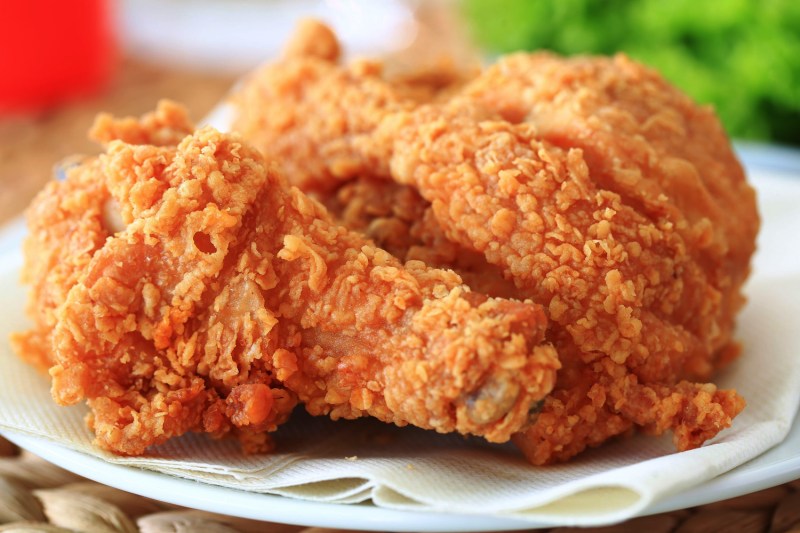
Fried foods
There’s a reason fried food is so sinfully delicious. Just think of that hot, greasy, mouth-watering sizzle as you bite into a battered, fried . . . anything. It’s one of the greatest tastes in the world. However, if you ever find yourself with leftover fried food, freezing it will take it from delicious to dud in no time at all.
There are two reasons for this. Firstly, that piping hot, delicious oil won’t freeze. It will stay slick on the surface of your food, committing two sins in the process: Making that crispy coating soggy and potentially making you quite ill by refusing to freeze and potentially growing bacteria. No, thanks. Secondly, the moisture of the freezer will soak through the once-crispy breading of the food and dance with that oil, leaving nothing but a soggy, mushy paste in its path.
Better just eat all that fried chicken. Dammit.

Coffee
We know, this one is controversial. It isn’t uncommon to store one’s coffee beans or grounds in the freezer, as many think this storage method will keep the coffee fresh. It’s pretty standard practice. The problem is that when taking the grounds or beans out — and, presumably, setting them on the kitchen counter long enough to warm up a bit — every single day, the constant temperature fluctuation is causing more harm than good. When coffee beans thaw, moisture can seep inside of them. When this happens, the flavor diminishes as the chemical reaction strips the beans of their natural oils. This process, when repeated day after day, will leave you with a pretty lifeless cup o’ Joe.
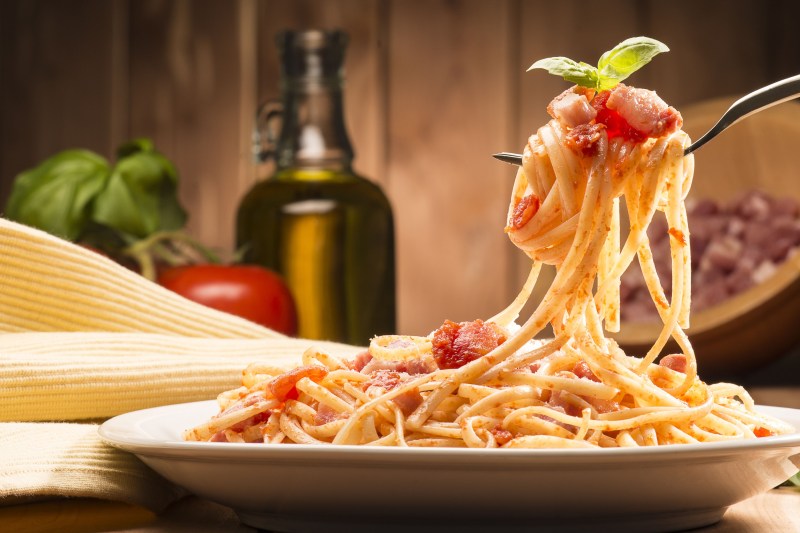
Cooked pasta
If you’ve ever accidentally overcooked pasta, you know how gross and flabby it can become. Now imagine that result and magnify it in your mind about 10 times. Frozen cooked pasta bloats nearly to the point of bursting, resulting in a puffed, flavorless strand of mushy disgust.
Milk-based gravies
There are two ways to look at this one. First, not being able to preserve beautiful sausage or bacon gravy after a glorious Saturday morning biscuit and gravy feed is, admittedly, terrible news. On the other hand, though, if you do happen to have leftover gravy after such an occasion, something must be seriously wrong with you, and you should seek help.
While many gravies freeze beautifully, milk or cream-based sauces don’t hold up well in the freezer. They’re likely to separate or curdle. Best to eat it all in one go. You’re welcome.
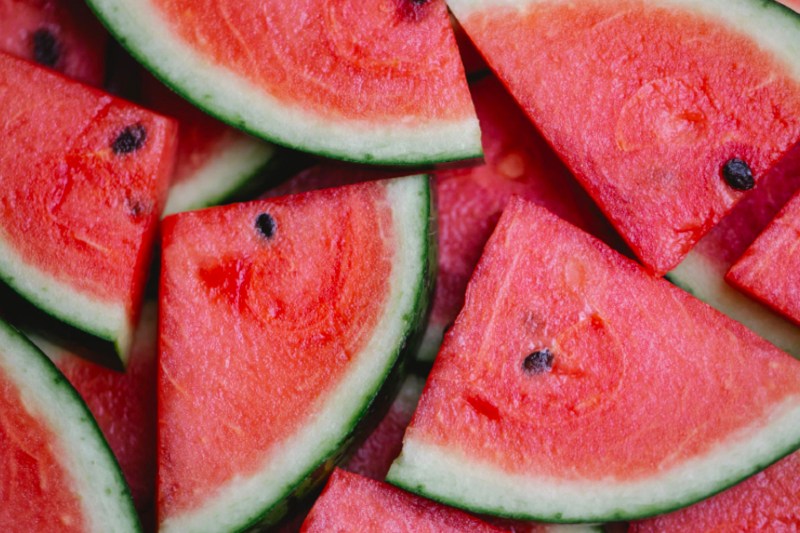
Certain fruits
This one comes with a caveat. If the idea is to eat the fruit frozen, freeze it to your heart’s content. The problem here comes when certain fruits start to thaw. Moisture-rich fruits like melons, grapes, or citrus lose all of their structure when thawed from a frozen state. However, one of our favorite summertime snacks is a big batch of frozen grapes — get ’em while they’re cold.

Carbonated beverages
We’ve probably all experienced this fizzy drink problem firsthand. You’re just going to pop that Coke in the freezer for a few minutes to get it cold. You won’t forget. You’re sure of it. Then, the inevitable happens — it’s five hours later, and now you have to clean up an exploded soda volcano from the inside of your freezer. If you remember 6th grade science class, you’ll know that this happens because water expands when frozen. Of course, this will cause whatever vessel is holding your carbonated drink to explode — not a pleasant experience, especially if that vessel is a pricy champagne bottle and not a soda can from the gas station.
If you do somehow remember to get your beverage out of the freezer before this happens, do keep in mind that, depending on how long you chilled it, the product could taste a bit flat. This is because the water molecules in your drink crystallize when frozen, pushing the carbon dioxide (the gas that makes the bubbles) out of your drink, thus flattening the taste and texture.




